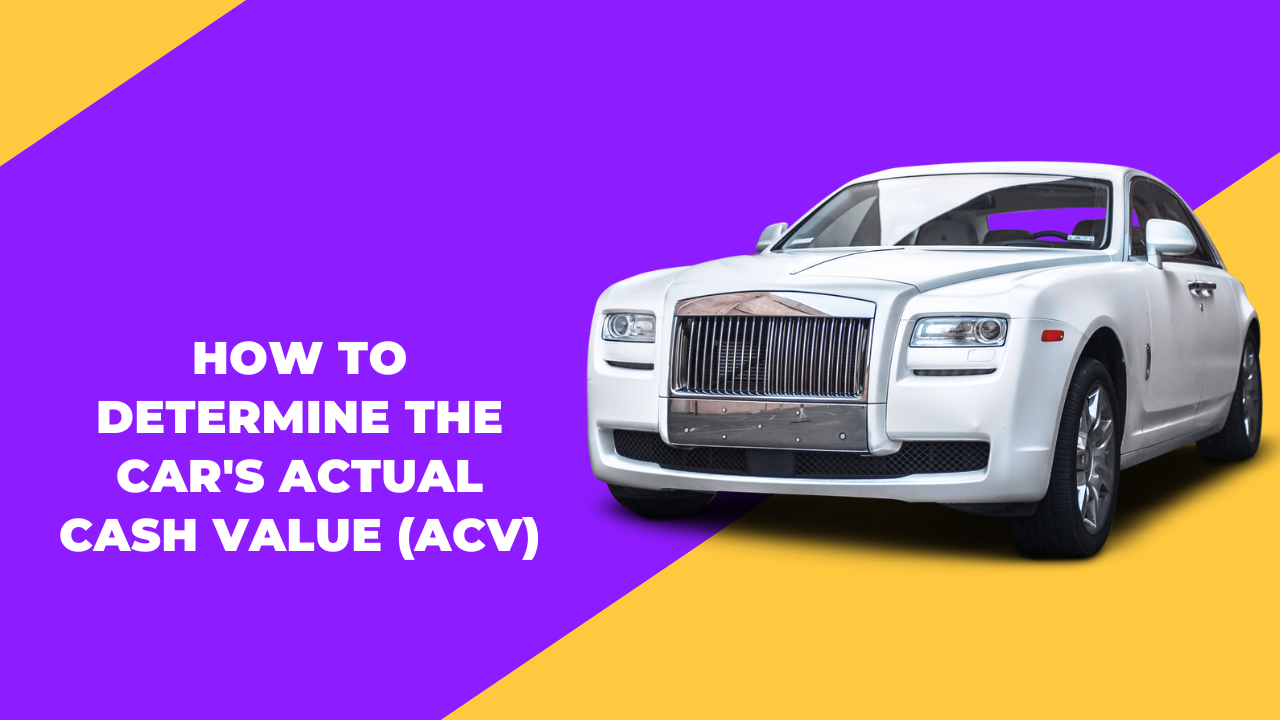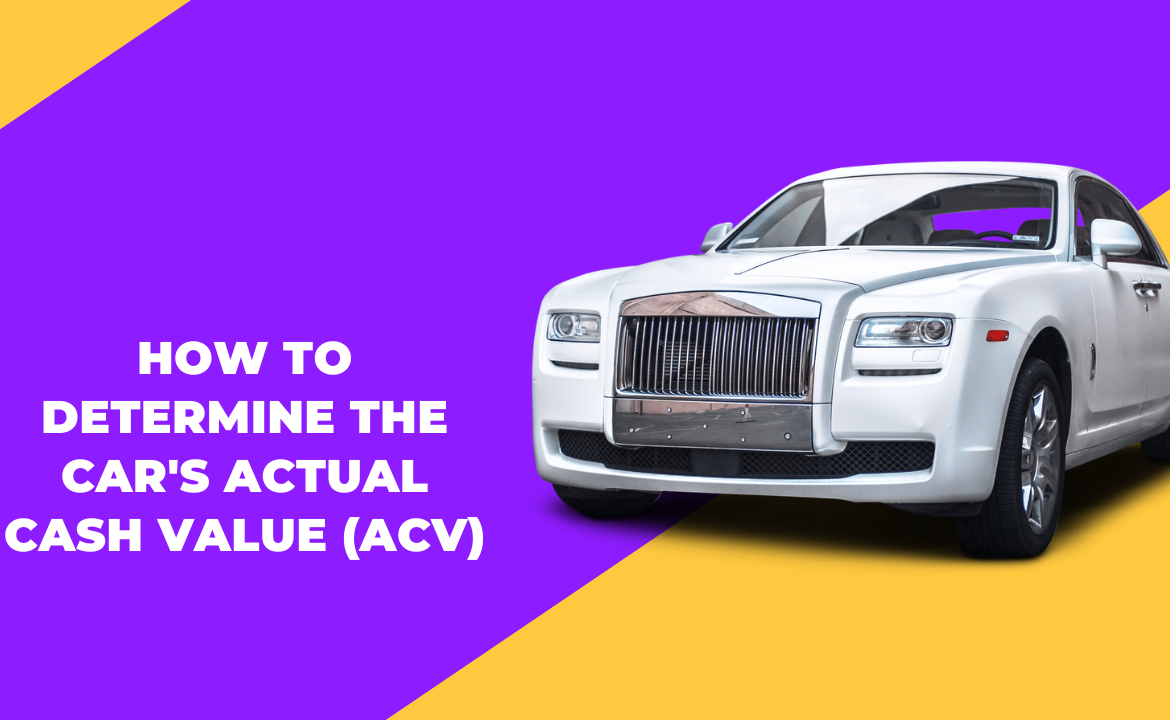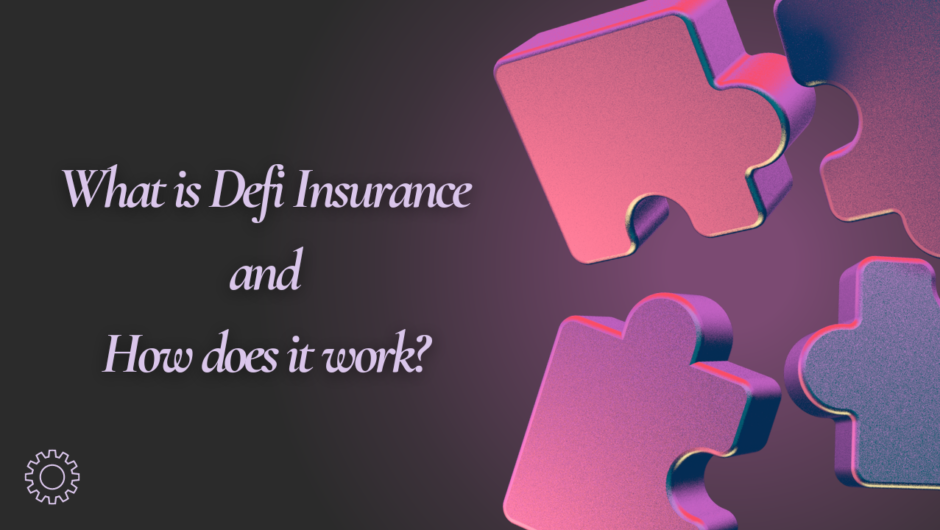The Actual Cash Value (ACV) of a car is a crucial metric used by insurance companies to assess the current worth of a vehicle. ACV represents the amount an insurance company would pay if a car is stolen or deemed a total loss after an accident. It factors in depreciation, wear and tear, and the car’s age to determine its fair market value at the time of the claim. Understanding ACV is essential for car owners to ensure they receive a fair settlement from their insurer, reflecting the true value of their vehicle minus any depreciation.

Importance of ACV in Car Insurance
The Actual Cash Value (ACV) in car insurance is of paramount importance as it determines the payout a policyholder will receive if their vehicle is stolen or totaled. ACV represents the car’s current market value, accounting for depreciation and wear and tear. This value ensures that policyholders are compensated fairly, reflecting the true worth of their vehicle at the time of the loss.
Understanding ACV helps car owners set realistic expectations for insurance claims and avoid surprises during the claims process. It also plays a critical role in deciding coverage levels and premiums. Comprehensive and collision coverage, for instance, are based on the vehicle’s ACV. Additionally, knowing the ACV can guide car owners in making informed decisions about repairs versus replacements. Overall, the ACV is a key component in achieving a fair and transparent insurance process, safeguarding policyholders’ financial interests.
Steps to Determine ACV
Determining a car’s Actual Cash Value (ACV) involves several steps to ensure an accurate assessment. First, gather vehicle information such as the make, model, year, mileage, condition, and any additional features or modifications. This detailed information provides a foundation for accurate valuation.
Next, research the market value by comparing similar vehicles in local listings, dealerships, and online platforms. This helps establish a baseline for what your car might sell for in the current market.
Consider depreciation by accounting for the vehicle’s age and wear and tear. Depreciation rates can vary, but generally, cars lose value over time due to usage and obsolescence.
Finally, utilize online ACV calculators offered by insurance companies or automotive websites. These tools streamline the process by combining your vehicle’s details with market data to provide an estimated ACV. By following these steps, you can arrive at a realistic and fair valuation of your car’s worth.
What are the factors Influencing ACV?
- Age of the Vehicle: Older cars typically have a lower ACV due to depreciation over time. The age impacts the car’s value as newer models with updated features are usually more desirable.
- Mileage: High mileage can significantly decrease a car’s ACV. Vehicles with more miles are often seen as having more wear and tear, which reduces their market value.
- Overall Condition: The car’s physical and mechanical condition plays a crucial role. Well-maintained vehicles with minimal damage and in good working order are valued higher than those with significant wear or mechanical issues.
- Market Demand: The desirability of a particular make and model can affect its ACV. Cars that are in high demand or have a strong resale value will have a higher ACV compared to those that are less popular or have a weaker market presence.
Difference between ACV vs. Replacement Cost
| Aspect | Actual Cash Value (ACV) | Replacement Cost |
|---|---|---|
| Definition | The current market value of the car, accounting for depreciation. | The cost to replace the car with a new, similar vehicle without considering depreciation. |
| Depreciation | Takes into account depreciation and wear and tear. | Does not account for depreciation; based on new car value. |
| Payout Amount | Lower payout due to depreciation deductions. | Higher payout to cover the cost of a new vehicle. |
| Calculation Basis | Based on the car’s age, mileage, condition, and market value. | Based on the cost to purchase a new, comparable car. |
| Typical Use | Standard in most car insurance policies for total loss claims. | Often used in replacement cost policies or endorsements. |
| Premium Cost | Generally lower premiums due to reduced payout. | Higher premiums due to increased coverage amount. |
| Financial Impact | May leave a gap between payout and cost to replace the vehicle. | Provides full coverage to replace the vehicle without out-of-pocket expenses. |
How to Maximize Your Car’s ACV ?
Maximizing your car’s Actual Cash Value (ACV) can ensure you receive a fair payout in case of a total loss. Here are some tips to help you achieve the highest possible ACV:
- Maintain Regular Maintenance: Keep up with scheduled maintenance such as oil changes, tire rotations, and brake checks. Well-documented service records can boost your car’s value.
- Keep the Car Clean: Regularly wash and wax your car, and keep the interior clean and free of stains or odors. A well-maintained appearance can significantly enhance your car’s value.
- Repair Damages: Address minor dents, scratches, and any mechanical issues promptly. Unrepaired damages can substantially reduce the ACV.
- Document Upgrades: If you’ve added any upgrades or modifications like new tires, a sound system, or advanced safety features, keep receipts and documentation as they can add value.
- Research Market Trends: Stay informed about your car’s market value by regularly checking similar listings. This helps you understand and justify the ACV to the insurance company.
Conclusion: Understanding and Negotiating ACV
Understanding and negotiating your car’s Actual Cash Value (ACV) is essential for ensuring fair compensation from your insurance company. By comprehending how ACV is calculated, including factors like age, mileage, condition, and market demand, you can better advocate for an accurate valuation. Regular maintenance, keeping records of upgrades, and staying informed about market trends can enhance your car’s ACV. In case of a dispute, presenting detailed documentation and market comparisons can strengthen your negotiation position. Ultimately, being well-informed and proactive can help you secure a fair and favorable settlement for your vehicle.
Frequently Asked Question (FAQs)
1. What factors affect my car’s Actual Cash Value (ACV)?
Your car’s ACV is influenced by factors such as its age, mileage, overall condition, and market demand. Depreciation and wear and tear also play significant roles in determining the ACV.
2. How can I increase my car’s ACV before a claim?
To boost your car’s ACV, maintain regular maintenance, keep it clean, repair any damages, document upgrades or modifications, and stay updated on market trends for similar vehicles.
3. What is the difference between ACV and replacement cost?
ACV accounts for depreciation and reflects the current market value of your car, while replacement cost is the amount needed to replace your car with a new, similar model without considering depreciation.
4. How can I dispute an ACV offer from my insurance company?
If you disagree with the ACV offer, gather detailed documentation, including repair records, recent market comparisons, and any upgrades. Present this evidence to your insurer to negotiate a more accurate and fair valuation.
Read More:
- Bike Insurance: Premium Details And How To Buy
- How safe private insurance companies are?
- 7 principles of Insurance which every investor should know
- Why should you avail life insurance?

Hello, I am Tanisha Kriplani, graduated in computer science from Delhi University. I am passionate about web content writing and have a strong interest in Data Analytics and Data Engineering.












